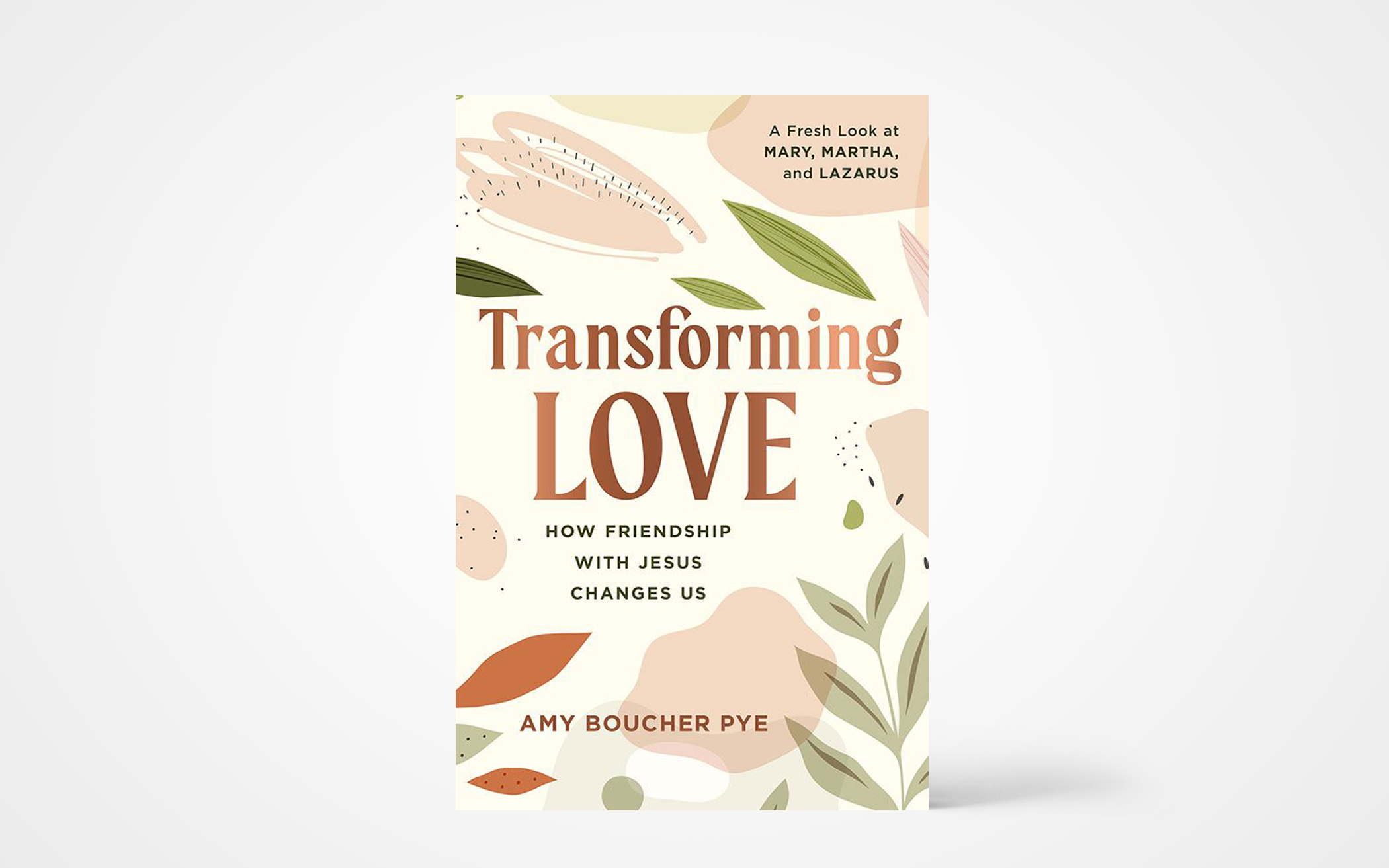What can we learn from three stories about Jesus’ friendship with three siblings?
Amy Boucher Pye, who wrote 7 Ways to Pray, one of my top Christian living book picks for 2021, has written another wholehearted, beautifully rendered and life-changing book: Transforming Love. This time, she focuses on the friendships of Jesus with Mary, Martha, and Lazarus, and the three stories in the Bible that reveal the depth of their connection to one another. As we examine those friendships—unshakeable even in death, intimate, and deeply secure—we also learn to sit at his feet as Mary did, proclaim our faith, as Martha did, and find resurrection like Lazarus.
The first story is of Martha working in the kitchen and complaining to Jesus that her sister, Mary, is just sitting there at his feet, not helping her. Boucher Pye brings out vivid details of the cultural context, such as the fact that in Aramaic, Martha’s name means “owner” or “master.” She is named as the head of the household, not her brother, Lazarus, which has led some to speculate that he had a chronic illness.
Over the past 2,000 years since these stories took place, we have often thought poorly of an anxious Martha, but here she is lauded for her intimacy with Jesus, as seen in her freedom to complain to him in the first place. “I think in our rush to judge Martha we may overlook how wonderful it is that she can share her exasperation with Jesus,” Boucher Pye writes.
Jesus broke cultural expectations and “rules” by inviting Mary to soak in his presence and teachings. “Women weren’t allowed to be disciples of a rabbi; it just wasn’t accepted. Women couldn’t even … touch the Torah,” the author writes. “Jesus, however, risks the scandal of Mary breaking the cultural norms. Seeing her as being worthy of being his friend and disciple, Jesus wants her to learn from him and to sit at his feet.”
The second story centers on Lazarus’s death and resurrection and invites readers to consider their own need for resurrection as well as Martha’s “amazing confession of faith” in Jesus after her brother has already died: “But I know even now God will give you whatever you ask” (John 11:26). I had never thought of Martha as having a mighty faith, but now I do.
The final story of these Bethany siblings is one I have always loved: Mary pouring out the jar of pure nard and anointing Jesus’s feet. When the disciples berate her harshly for her generosity, Jesus defends Mary for the second time in Scripture, telling them to “leave her alone” because she “did what she could.”
Boucher Pye points out that the nard would have smelled like gladiolas and could have been smelled from up to half a mile away.
“(Mary’s) unbounded love rocked the world for thousands of years,” the author writes. “She does what she can do to show her love for her friend.”
By going deep into these three well known Bible stories, Boucher Pye gleans many fresh insights and new applications that can comfort, encourage, and embolden readers, who will never again view Mary, Martha, and Lazarus in the same way. By leaning close to the Bethany siblings and their dearest friend, Jesus, we, too, are changed and blessed by the endless possibilities of a deep, transforming relationship with him.
“May our lives reverberate with the glories of friendship with God,” Boucher Pye finishes her rich, illuminating book. May it be so. (Our Daily Bread)
About the Author
Lorilee Craker, a native of Winnipeg, Man., lives in Grand Rapids, Mich. The author of 16 books, she is the Mixed Media editor of The Banner. Her latest book is called Eat Like a Heroine: Nourish and Flourish With Bookish Stars From Anne of Green Gables to Zora Neale Hurston.

